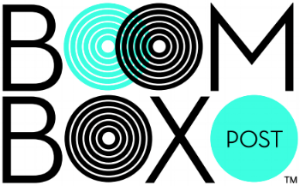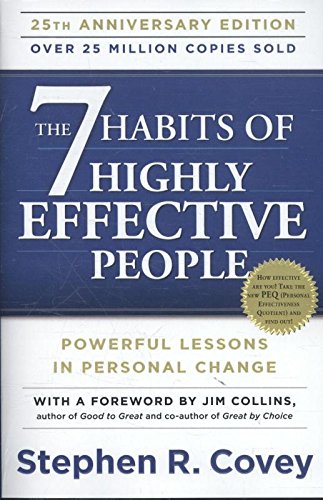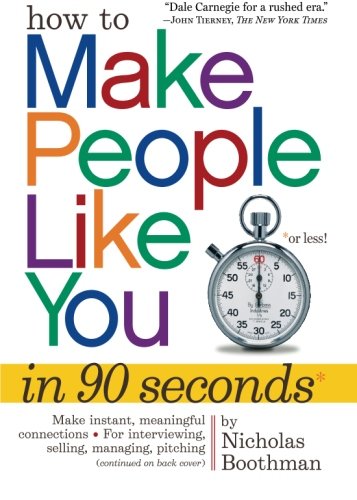WRITTEN BY JEFF SHIFFMAN, CO-OWNER OF BOOM BOX POST
Creativity and talent are a huge part of being a professional sound editor. But our talents can only take us so far. I get questions all the time about finding work and have written another post specifically on how best to make this happen. Today however, I want to talk a bit about not just getting work as a sound editor but building a career. Because the way we approach our every day challenges can be just as important as the way we pour our creativity into them.
Which brings me to The Habits. Stephen R. Covey’s highly influential book The Seven Habits of Highly Effective People is widely regarded as a mainstay of modern self improvement. Its aims are quite general, providing help across the broad spectrum of its readers. For our purposes, I thought it would be useful to try and drill them down directly from the perspective of a sound editor. It is my hope that this interpretation will help today’s sound editor improve productivity and concentration, communicate more effectively and approach our career with an open and excited attitude.
Habit 1: Be Proactive
“Being proactive is stopping to evaluate those things you can control and focusing your efforts on these tasks.”
You may assume this first habit is about going out and getting work. But what Covey gets at here is the idea that you can not control everything. Each of us has a ‘circle if influence’ that encompasses that which we have the ability to change. Being proactive is stopping to evaluate those things you can control and focusing your efforts on these tasks. We so often focus negatively on those things we can not control, which is simply a waste of time (and in my opinion bad juju).
Habit 1 in practice:
Production is organized chaos. Schedules inevitably change, creative visions are fluid. This is all part of the job for a sound editor. We all know those editors who simply never stop talking about the negatives of the job (I’ll certainly admit to having been there myself on one project or another). Can you imagine all the great work that could have been accomplished by simply putting that energy into creativity instead of negativity? Having an attitude of helpfulness, whereas you focus on how you can help solve problems is a good use of your time. Grumbling about how impossible a schedule can be is a time suck. Do yourself a favor and be proactive, always working toward a positive result where you can and let go of things over which you simply have no control.
Habit 2: Begin With the End In Mind
Sometimes I simply can’t wait to dive into a new project. The creative work is calling me and I don’t have time to think, I just need to get moving. While this is fun for the short term, post production is a marathon, not a sprint and there are lots of factors to take into account when starting any new project.
Habit 2 in practice:
Covey’s advice is to picture your own funeral. What would you like to be said about you, your life and accomplishments? A bit morbid, but effective. As sound editors, we can adapt this to the final re-recording mix (more birth than death of a project in my opinion but we will roll with the analogy nonetheless). What about this project do you want to be featured in the mix or talked about thereafter? Thinking ahead like this defines priorities and puts the whole project in perspective.
Habit 3: Put First Things First
We are all human. Shiny things are pretty and it’s easy to be distracted. In fact, it’s often easier to do anything other than the task at hand. When I worked from home, I used to love doing laundry simply because it was a legitimately productive way I could avoid my actual work. Laundry. For real. Covey suggests you don’t give into impulse but rather take a hard look at your priorities.
Again, I’ve got another blog post to illustrate techniques you can use to get over this hump. But I’d like to look at this habit as Covey does from a larger scale - mainly your career goals.
Habit 3 in practice:
“Are you making progress toward your ultimate career goals?”
In any career it’s easy to get started on a path and simply go along for the ride. I think this is especially true in creative jobs where we may be forced to hyper focus on a single portion of the larger process. A sound editor for example can be plugged into one of many different buckets - dialogue editor, foley editor, sound designer, etc. Once you’ve started on a particular path, it can be hard to deviate. I’m not suggesting you turn down work, but do keep in mind your long term goals and make a habit of re-evaluating them on a regular basis. Time has a way of flying by when we get busy. Be honest with yourself. Are you making progress toward your ultimate career goals?
In a business of feast or famine, it can be extremely hard to turn down work. But lets say you are plenty busy. I suggest at this point you take a look at each new project that crosses your desk with this same lens. But make sure the projects you take are worth your time and energy. Will they will ultimately be beneficial in moving you forward in your career? More on this in the next habit.
Habit 4: Think Win-Win
Every project you take on is a deal you are making with the client. Concentrate on making these interactions beneficial for both parties. Covey says we need to look at these interactions through the lens of "Do you give more than you take? Take more than you give?" Ultimately, each interaction is a withdrawal or deposit from an "emotional bank account." Do right by the clients that treat you well and create a positive balance in the account - great for building trust and more business.
Habit 4 in practice:
“If you feel you are being taken advantage of, you will not be at your best.”
Our clients want great work. We want to be creatively fulfilled and support ourselves in the process. Easy win-win right? Well there’s a lot that goes into making everyone happy. For starters, never take on a project that undervalues your contribution either creatively or financially. If you feel you are being taken advantage of, you will not be at your best. This is a loss for the client AND and loss for you since you’ve now committed your time to a project that will not display your best work. Ours is a business of reputation and any project that is not given 100% is a true waste of your time and talents.
Of course, if you expected a win-win and find yourself in a losing situation, make the best of it by challenging yourself to maintain a positive attitude, and use the experience to inform your choices in the future.
Habit 5: Seek First to Understand, Then to Be Understood
We like the sound of our own voices. And frankly, it’s less work to ramble on than to sit and actively listen to one another. Covey stresses the importance of active listening. Diagnose the problem, and only then prescribe a solution.
Habit 5 in practice:
“Only respond when you have something to contribute to the conversation”
Your clients run the room, not you. Listen first, absorb their needs. It’s easy to assume we know what someone wants creatively just a few seconds into a conversation but interrupting is a mistake. Creative meetings are such a valuable resource. Take the time to listen, and if needed, ask simple questions to keep the conversation going. Only respond when you have something to contribute to the conversation and not to simply boost your ego by the sound of your own voice. Just like Habit 2, this early step in the process can have a global effect on the entire project.
Habit 6: Synergize
This is where the rubber hits the road and you put all of these Habits into practice. Covey says "The creative process is also the most terrifying part because you don't know exactly what's going to happen or where it is going to lead." This is our whole business. It's scary to start a new project, but also exciting!
Habit 6 in practice:
Make your creative partnership mutually beneficial for your best work (win-win). Listen closely to the needs of your clients (seek to understand). They are excited for your contribution and you are excited to contribute. Now it’s all of you on a creative mission together. One team trying to create something truly special. This is where the work gets really fun and bonds begin to form. These positive experiences over time will lead to a long lasting relationship and ultimately a rewarding career.
Habit 7: Sharpen the Saw
Your body and mind ultimately your most important tools. Take care of them and you’ll be rewarded.
Habit 7 in practice:
“Eat well, get sufficient rest and exercise. It’s so easy to get stuck in a negative loop either from being overworked or frustrated by lack of work.”
Ug, exercise and healthy foods? I bet you didn’t see this one coming. But in all seriousness, how can we do great work if we don’t feel great? In order to effectively implement these habits, you need to take care of yourself. Eat well, get sufficient rest and exercise. It's so easy to get stuck in a negative loop either from being overworked or frustrated by lack of work. Practicing this habit will make all other habits easier to accomplish. Need a little boost? help yourself commit by writing down and sticking to just one specific activity to help improve your well being. You can add on from there.
If you want to dive further into the 7 habits, there's a great summary here on Hubspot
Or purchase your own copy, or a copy of these other books relevant to this post (I threw Deep Nutrition in there to help with Habit 7)





